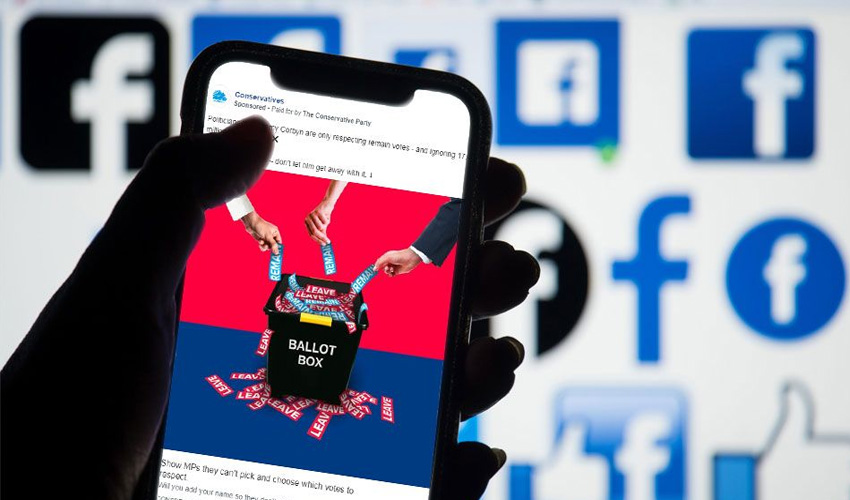As the 2024 U.S. presidential election approaches, social media has become an integral force in the campaign landscape. The dynamic shift from traditional campaigning methods to digital platforms has reshaped how candidates communicate with voters, present their platforms, and engage in political discourse.
With former President Donald Trump and Kamala Harris seeking election as first woman president of US, understanding the impact of social media on their campaigns and the electorate is crucial.
Evolution of campaigning in digital age
Gone are the days when political candidates relied solely on handshakes, rallies, and door-to-door canvassing. Social media has revolutionized the way political campaigns are conducted, providing a platform for candidates to reach millions of voters directly. This shift has accelerated over the past decade, with platforms like Twitter, Facebook, Instagram, and TikTok playing pivotal roles in shaping public perception and voter behaviour.
Dr. Amy Becker, a Loyola Communications Professor specialising in political entertainment and public opinion, emphasizes the growing importance of social media in contemporary elections. “I think the election is of added importance given recent threats to democracy and increasing distrust of politicians and the media. We are seeing a real choice between democratic norms and autocracy around the globe,” Dr. Becker notes.
To get the latest updates and insights on US Election 2024 you can also watch my podcast below.
Social media’s influence extends beyond mere information dissemination. It has become a powerful tool for mobilization, fundraising, and voter engagement. Candidates use social media to amplify their messages, engage with supporters, and counteract their opponents’ narratives.
Social media’s role in voter engagement cannot be overstated. Pew Research Center data from October 2019 to June 2020 reveals that 18.8% of U.S. adults get their political news primarily through social media. This statistic highlights the significant shift from traditional news sources to digital platforms for political information.
For college students like Jaylynn Lawlah, a Communications major at her university and a member of the Student Government Association’s Marketing Committee, social media serves as a primary news source. “I rely on social media when making decisions about a candidate. As a college student with a busy schedule, it’s often hard to find time to watch the news or do in-depth research. Social media helps me stay informed about who is running and what they stand for,” Lawlah explains.
Dr. Becker underscores the importance of social media for younger voters. “Social media is an important source of information for the average voter, particularly younger folks who prefer to get their information from social media over traditional news sources. We often see news sources and content that align with our point of view, which can create echo chambers,” she says.
Social Media on previous Elections
The influence of social media on elections has been profound. A Princeton University study highlights that Twitter significantly impacted the Republican vote share in the 2016 and 2020 presidential elections. The study found that Twitter’s relatively liberal content may have persuaded moderate voters to vote against Donald Trump.
Social media’s impact is evident in the way candidates shape their public image and campaign strategies. The platforms allow for rapid dissemination of information, but also for the spread of misinformation and disinformation. The challenge for voters is navigating this digital landscape and discerning fact from fiction.
Misinformation and disinformation are significant concerns in the digital age. Social media has made it easier for false information to spread rapidly, influencing public opinion and voter behavior. Dr. Becker points out that “many individuals struggle to separate truth from misinformation or disinformation on social media. This is compounded by the fact that we are often exposed to content that reinforces our existing beliefs.”
Lawlah acknowledges the difficulty of navigating misinformation. “When I find a candidate that seems important, I do my own research to get first-hand knowledge, rather than relying solely on social media summaries. For instance, I did this for Maryland’s 2022 governor race,” she shares.
Social media and negative campaigning
Social media has also introduced a new dimension to negative campaigning. Candidates can use these platforms to mock and attack their opponents in ways that were not possible with traditional media. This approach mirrors the negative TV ads of past elections but is often more direct and personalized.
Dr. Becker observes, “Trump’s personality is unique in that he’s more combative and willing to go on the attack than traditional candidates. Biden needs to respond with attacks rather than letting Trump’s attacks go unchallenged.” The ability to quickly respond and counterattack on social media adds a new layer to campaign strategies.
Beyond information dissemination, social media plays a crucial role in mobilizing voters and raising campaign funds. Candidates use social media to organize rallies, encourage voter registration, and solicit donations. The immediacy and reach of social media platforms make them effective tools for grassroots mobilization and fundraising.
In the 2020 election, social media platforms were instrumental in organizing voter turnout efforts. The same strategies are being employed in the 2024 race, with both Trump and Biden leveraging social media to rally their bases and expand their reach.
As we look ahead to the 2024 election, social media’s role in politics is likely to grow even more significant. With advancements in technology and the continued evolution of digital platforms, candidates will find new ways to connect with voters and influence public opinion.
Dr. Becker highlights the ongoing evolution of social media’s role in politics. “We are in a period of rapid change, and social media’s influence will continue to shape political campaigns. Candidates will need to adapt to new technologies and strategies to effectively reach and engage voters.”
Social media has transformed U.S. election campaigns, offering new opportunities and challenges for candidates and voters alike. As the 2024 presidential election approaches, understanding the role of social media in shaping voter behavior, influencing campaign strategies, and navigating misinformation is essential. With the rematch between Donald Trump and Joe Biden, the impact of social media will be closely scrutinized as both candidates seek to leverage these platforms to their advantage. As we move closer to Election Day, staying informed and critically evaluating the information presented on social media will be crucial for all voters.



























